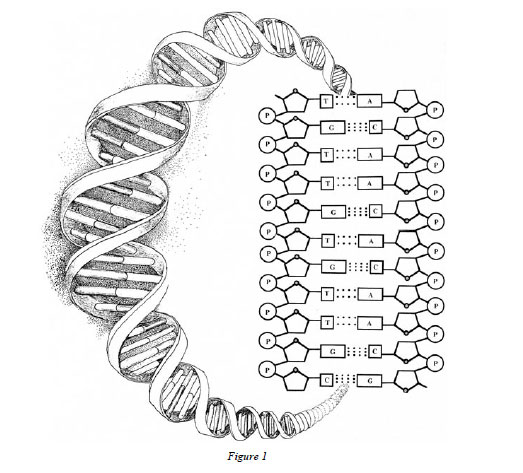The Death of Materialism – Part 1
| By: Dave Hunt; ©2000 |
| Dave Hunt explores the effects of a materialistic world view, and the acceptance of the evolutionary theory on our society and on our personal relationships |
The acceptance of Darwinian evolution in the nineteenth century was the key development in moving the scientific world into hard-core materialism. Nevertheless, increasing numbers of leading physical scientists became convinced of the reality of a nonphysical world. Among them were Nobel laureate Eugene Wigner, one of the greatest physicists of the century, the mathematician and quantum mechanics theorist John von Neumann (sometimes called “the smartest man who ever lived”), and Sir Karl Popper, recognized as the most famous philosopher of science of recent times. Sir John Eccles quotes Popper as saying:
- According to determinism, any theory… is held because of a certain physical structure of the holder—perhaps of his brain. Accordingly, we are deceiving ourselves… whenever we believe that there are such things as arguments or reasons…. Purely physical conditions… make us say or accept whatever we say or accept.[1]
If materialism and determinism are true, then the theory of evolution itself must be the result of random thoughts and thus could not be true. In fact, the very concept of true and false, good and evil—and all other ideas and beliefs—would simply be the result of random motions of atoms in the brain which all began with a big bang billions of years ago and have proceeded by chance ever since. If so, then our thoughts have no meaning. On the contrary, the fact that the mind must be something other than brain, and that it formulates meaningful thoughts, is demanded by our everyday experience and forms another argument against materialism.
Contents
Evolution Destroyed the Soul
As Mortimer J. Adler points out in his book The Difference of Man and the Difference It Makes, there is such a vast chasm between animal instinct and uniquely human characteristics (for instance, recognition of good and evil and appreciation of beauty) that there is no way to bridge it by a gradual evolutionary transformation. The human soul stands squarely in the way of evolution. To refute special creation, one would have to show that human personality is simply a quality of organic matter acquired through the evolution of the physical brain and nervous system. Behavioristic and humanistic psychologies provide the rationale for the general acceptance of evolution and materialism. Charles Tart, Professor of Psychology at the University of California at Davis, points out some of the consequences:
- Behaviorism and psychoanalysis make it very clear that the mind is the brain. This means, of course, that when you die you’re dead. There is no survival. There’s no real spiritual life…. Humanistic psychology… didn’t teach us to question the mechanistic assumptions of the Western world view [it supported them].[2]
Materialistic understanding of man persisted as the predominant view in academia well past the middle of this century. Psychology was determined to establish itself as a science on a par not only with medicine but with physics and chemistry. This author well remembers the prevailing view when he attended university 50 years ago: Humans were simply complex lumps of protein molecules wired with nerves who made conditioned responses to stimuli bombarding them from the physical world. Human behavior could therefore be reprogrammed through the “scientific” methods of “behavior modification.” One day it would be possible, with drugs and therapy, to reprogram the brains of criminals and overly aggressive political leaders and thus turn this world once again into paradise.
A “Ghost” in the Machine
Thoughts were presumed to originate in the brain as the result of chemical and electrical processes. Nothing nonphysical could exist. Contrary to common sense, man was the prisoner of whatever his brain cells (for purely mechanistic reasons) “thought.” This incredible “fact” of science was taught throughout the academic world.
The great hope was that the laws of physics and chemistry; applied to the brain, would explain human personality. That would allow psychiatrists to manipulate the brain like a mechanic does an engine. Thus all inappropriate behavior could be eliminated. There would be no more wars or crime and this world would become a rhapsody of kindness, pleasure, and prosperity, the Eden no one had believed in.
It was impossible, however, to suppress the evidence that, instead of producing thought, brain activity is a result of thought. Inasmuch as thoughts originate independently of the brain, they must exist outside the physical dimension. That fact is self-evident on the basis of the many thoughts for which there is no physical counterpart nor any physical stimulus: truth, justice, holiness, perfection, God, ad infinitum. Indeed, consciousness itself exists outside the realm of science, Michael Polanyi argued:
- The most striking feature of our own existence is our sentience [consciousness]. The laws of physics and chemistry include no conception of sentience, and any system wholly determined by these [physical laws] must be insentient [i.e. without consciousness].
- It may be to the interests of science to turn a blind eye on this central fact of the universe, but it is certainly not in the interest of truth.[3]
No matter how “intelligent” a computer may be, it can only do what it has been programmed to do. Nor can the brain, though far more complex than any computer, think on its own. If thought were the result of neural activity in the brain, we would all be helplessly dragged along by chemical/electrical processes determining our thoughts and even our morals and emotions. No rational person can accept that hypothesis because we demonstrate our power of choice, and thus control of our brain cells, countless times each day. There is a “ghost” in the machine. The human soul and spirit do the thinking and use the brain to communicate these thoughts to the body and through the body to others.
No “Science” of Human Behavior
For materialism to be a valid theory, human personality and behavior would have to be explicable in purely scientific terms and subject to modification according to the laws of physical science. It would therefore be theoretically possible to precisely predict human behavior and to reprogram personality. Otherwise there could be no science of human behavior. Although most psychologists would now recognize that their profession is not science, some still cling to that appealing delusion.
It requires little common sense to recognize that there could not possibly be a “science of human behavior.” If there were, then for a man to say to his wife or child “I love you” would be no more significant than to say he had an itch or a gastrointestinal pain. Love, an appreciation of beauty, a sense of injustice, and all other uniquely human emotions and understandings would simply be physical reactions within the brain cells, the nerves, and the glands, totally explicable by physical laws, thus as meaningless as a reaction between chemicals in a test tube.
Though behavioristic psychologists such as B.F. Skinner tried for years to convince themselves and others that man is a stimulus-response robot without the power to genuinely make choices—to love or hate, to do good or evil, to be kind or vicious—few retain that opinion today. Apparently one person who still does is Bill Gates, founder of Microsoft. Gates “believes that we’ll someday be able to replicate intelligence and emotions in a machine. But he admits that the joy of raising daughter Jennifer “goes beyond analytic description.”[4] Gates may one day recognize that Jennifer is not a machine.
Notes
- ↑ Sir John Eccles and Daniel N. Robinson, The Wonder of Being Human: Our Brain and Our Mind (New Science Library, 1981), p. 38.
- ↑ Rogo, “Psychology,” pp. 12-13.
- ↑ Michael Polanyi, The Tacit Dimension (Anchor 1967), p. 37, cited by Lawrence LeShan, The Science of the Paranormal: The Last Frontier (The Aquarian Press, 1987), p. 31.
- ↑ Time, January 13, 1997, p. 57.










[…] The Death of Materialism – Part 1 By: Dave Hunt […]